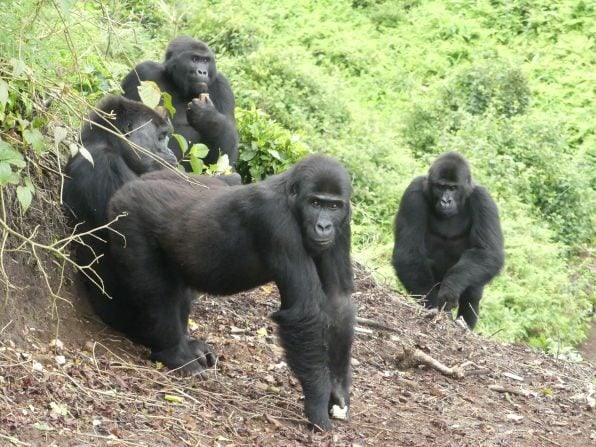A non-governmental organisation (NGO) interested in wildlife conservation, Wild Africa, has called for the protection of the country’s last 100 Cross River Gorillas from illegal bushmeat trade.
As the world celebrates World Gorilla Day, Nigeria’s representative at Wild Africa, Festus Iyorah, said Nigeria must act now to protect each of Nigeria’s last Cross River gorillas as they face extinction.
The group said there must be collective support to safeguard the gorilla populations and habitat and reduce demand for commercial bushmeat that threatens their existence.
LEADERSHIP Weekend reports that the Cross River gorillas live in the mountainous region between Nigeria and Cameroon, and it is the most endangered ape species, according to the IUCN Red List of Threatened Species.
It is estimated that fewer than 300 Cross River gorillas remain in the wild globally, making them the most endangered and elusive primates on Earth.
However, Iyorah said in a statement that in Nigeria, the gorillas face threats from poaching, habitat loss due to agricultural expansion, and population expansion. The illegal bushmeat trade, particularly hunting with wire snares set for bushmeat, which often injures gorillas, affects their survival as well.
“We must act now to protect every one of Nigeria’s last Cross River gorillas. The gorillas are part of our national heritage. Let us all come together to protect them, and ensure that this remarkable species continues to thrive in our country for future generations,” he said.
While the day celebrates the global significance of these species, it also highlights a sobering reality: one of the world’s rarest great apes is nearing extinction. Protecting them is no longer a conservation goal; it is a national responsibility.
Protecting Cross River gorillas is not only about preventing extinction; it is also about preserving Nigeria’s ecological heritage and supporting long-term economic sustainability.
Gorillas play a crucial role in maintaining healthy forest ecosystems. Their feeding and nesting behaviours contribute to seed dispersal and plant diversity, helping to regenerate forests. As umbrella species, protecting them ensures the survival of many other endangered species that share their habitat.
Their survival also presents a valuable opportunity for sustainable development, as gorilla-based ecotourism has the potential to generate foreign currency and support local communities.
The responsibility lies with the Nigerian government to strengthen enforcement of wildlife laws, update outdated legislation to reflect modern conservation needs, invest in habitat protection, and increase public education efforts to reduce the demand for commercial bushmeat.





